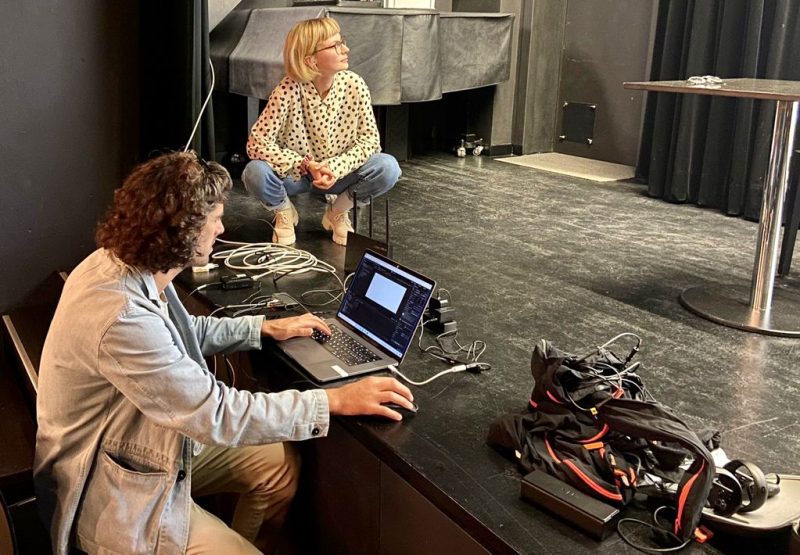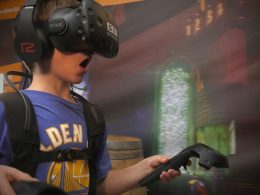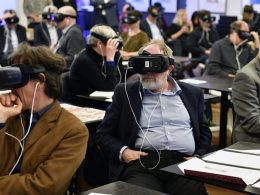The Kleintheater Luzern is gearing up for the future: for the past six months it has been exploring new digital formats such as virtual reality (VR).
A lot has changed in the theatre world since Lockdwon. One person who observes and helps shape developments in the theatre industry is Fabienne Mathis, project manager of the "digital stage" at the Kleintheater Luzern.
"What if the action from the stage of the Kleintheater Luzern suddenly moved into a completely new world and could transport an audience into a completely new space in the blink of an eye?", Fabienne Mathis asks the participants of a workshop at the Kleintheater on the topic of virtual reality.
The uncertain future of theatre
In the coming months, Kleintheater Luzern, in collaboration with the Lucerne University of Applied Sciences and Arts (HSLU) and other experts, will be holding workshops on the topic of "How digitalisation can be used in the theatre industry". This transformation project is substantially co-supported by the Canton of Lucerne. The focus is not only on the reaction to the long empty theatre halls, but also on an integration of new digital possibilities.
"What could these new spaces look like? Would they have anything at all in common with real theatre?" asks Fabienne Mathis. "As different as their images in their heads and the feelings associated with them are when they leave the theatre space behind, as uncertain are the possibilities that arise from this."
Five projects are supported
"Through the targeted promotion of virtual or generally digital formats, we want to expand the repertoire and also appeal to a more diverse audience," Mathis explains the motives for the Kleintheater's new hybrid offering. Who can belong to these target groups will become apparent in the coming months. "At the moment, we know who our auditorium audience is. Who our online audience might be is something we still need to explore."
Computer scientists, game designers, actors or dramaturgs: They all get the opportunity to immerse themselves in the world of digitalisation in theatre during the workshops and try their hand at their own projects to connect the physical and virtual worlds. "Next spring, the selected five projects will be supported by us with a financial contribution," says Mathis.
For the implementation of the project, the winners will have the opportunity to use the already produced virtual space of the Kleintheater Luzern for their own productions and to draw on the know-how of the "Immersive Research Center" and the "Research Group Visual Narrative" of the Lucerne University of Applied Sciences and Arts.
Unlike in a theatre hall, there is no need to rent a room at all for virtual theatre, but production costs are often higher. That's why the small theatre is also dependent on sparring partners like the HSLU. Although a production for the audience is reduced to a virtual reality headset, for example, the expenses for production and equipment are just as high as for regular theatre productions.
New worlds and new emotions for the theatre world
This is another reason why this exchange between several interest groups in the workshop is central. "Here, the artists not only learn how to deal with new digital possibilities, but at the same time they also get a feeling for which works they need to realise creatively themselves and which ones they need to realise in collaboration with other disciplines," says Mathis. Although the digitalisation of public space has been known in the gaming scene for some time, there is still a lot of room for development in terms of theatre and digitalisation.
Production in digital and virtual space has advantages: Through the compatibility between the different spaces, people suddenly feel spatial proximity differently, sometimes more emotionally. Especially when the virtual and physical worlds are connected. In summer 2022 at the latest, the Kleintheater wants to take stock of the experience.
Source: zentralplus









